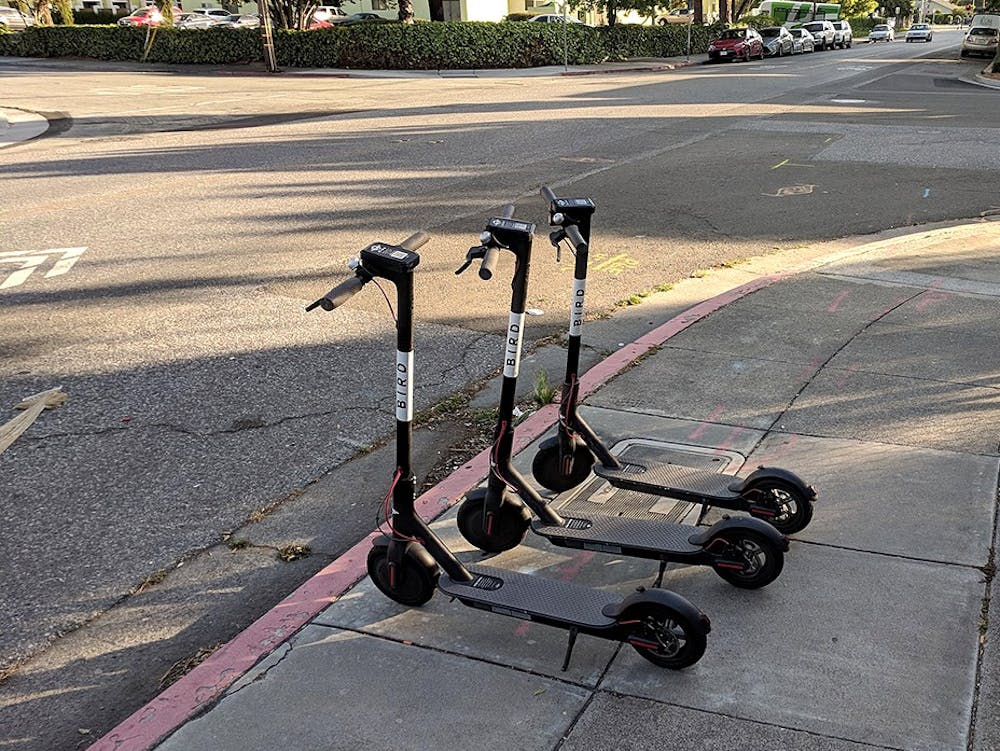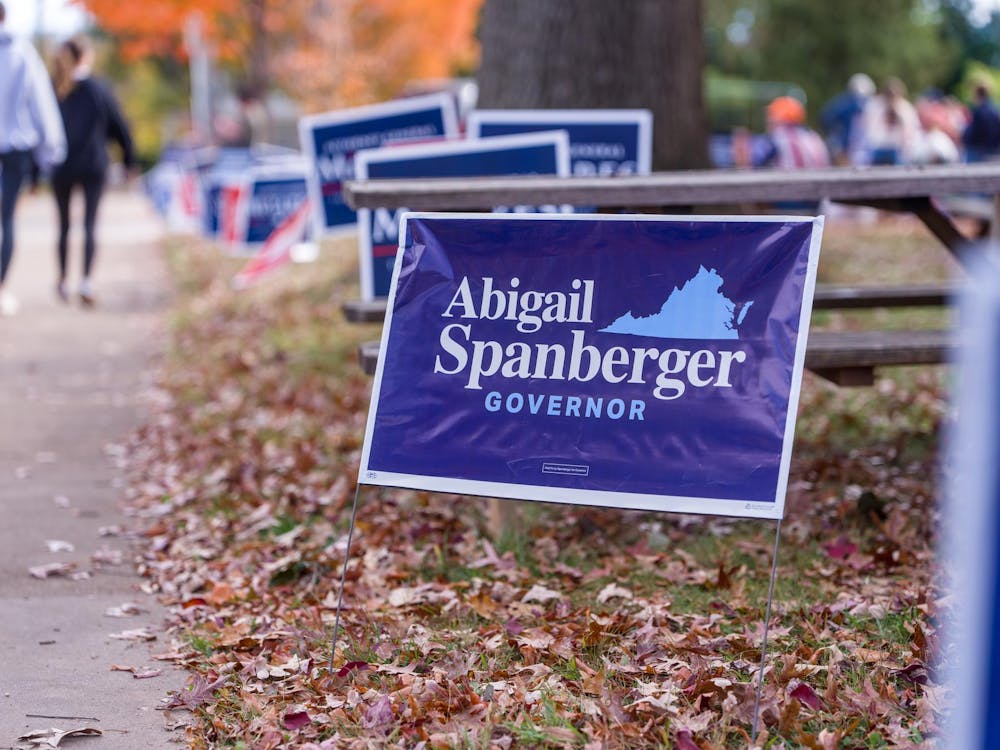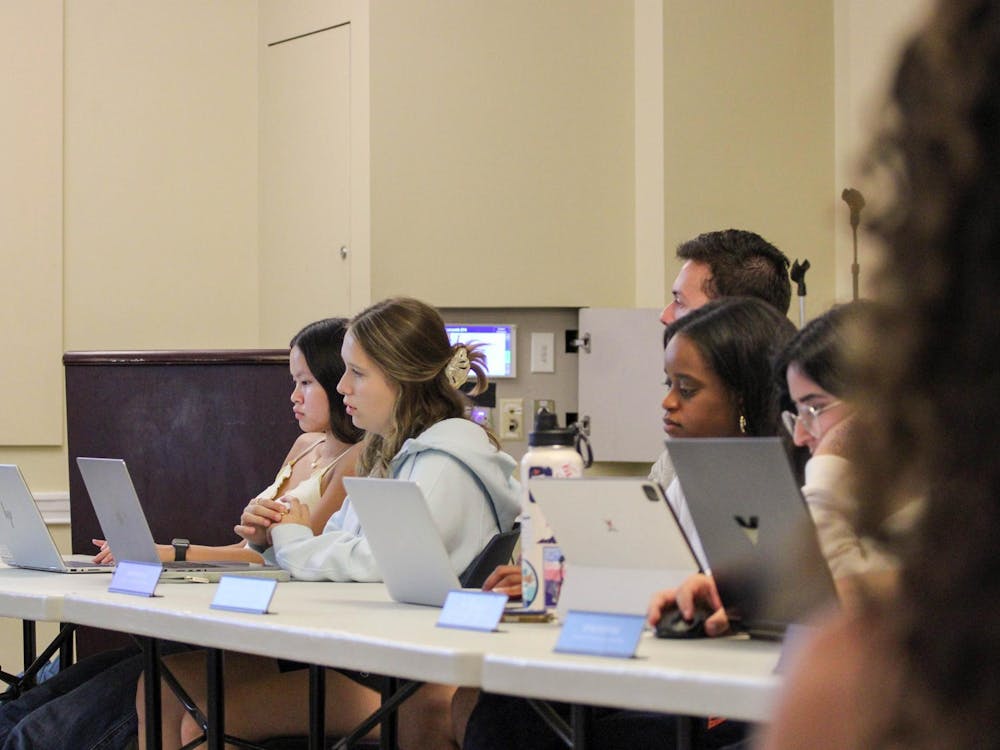Electric scooters could be coming to Charlottesville, pending a City Council decision to allow companies to apply to bring their scooter rental service to the City.
“There’s a chance that it could be on [a City Council] agenda in November,” said Jason Ness, a business development manager for the City of Charlottesville. “I think the turn-around time could be relatively quick — within a week or two once it’s approved, the companies would have to submit an application. So it could happen relatively soon after an ordinance is passed.”
Additionally, University Parking and Transportation is working with the City to look into the potential for scooter rental services in Charlottesville and possible safety concerns — including the how fast scooters operate, how they would operate on sidewalks and roads and where they would be parked.
“We have been reviewing policy and practices in other locations and drafting possible language for our area,” said Rebecca White, director of University Parking and Transportation. “Our effort is not brand-specific. Our focus has been on safety and operating norms.”
Bird, an electric scooter company, is interested in doing business in Charlottesville. They say their environmentally-friendly scooters help relieve traffic congestion and insufficient parking in college towns.
"Charlottesville is a forward thinking city that shares Bird's mission of getting cars off the road to reduce traffic and carbon emissions,” a Bird spokesperson said in an email statement to The Cavalier Daily. “We have had productive conversations with University and City officials, and we look forward to our partnership so that Bird is a reliable, affordable, and environmentally friendly transportation option for students and faculty."
Bird scooters currently operate in three other Virginia cities — Arlington, Virginia Beach and Richmond — and on 100 college campuses across the country.
“I think the idea behind using these scooters to replace short trips in cars or other vehicles especially single occupancy trips would be better for the City,” Ness said. “I think any time you give residents and community members options on how they do things — whether it’s walking, taking the bus or now riding scooters if they were to come — is better for the community as a whole.”
However, the Bird scooters have not come without criticism and controversy.
Particularly during their their first year of business, there was little official regulation surrounding electric scooter share companies. The company operated with self-imposed restrictions such as forbidding the scooters to be driven on sidewalks and requiring riders to have a valid driver’s license.
In June, the city government of San Francisco, Calif. issued a cease and desist order to the company after they had failed to obtain the proper permits. The scooters were temporarily removed from San Francisco.
The City of Denver fined Bird $27,150 in June for allowing scooters to accumulate and block sidewalks. Similarly, other cities have levied fines against Bird for failure to comply with business traffic laws.
Bird continued to place scooters into new cities without informing local authorities of their operations. In August, Bird’s unannounced presence in Richmond was met with frustration. The same day Bird launched in Richmond, city officials announced that the Department of Public Works would be removing the scooters, effective immediately.
Last month, Richmond’s mayor, Levar Stoney, announced that legislation would be presented to City Council that would allow for electric, dockless scooters to operate in the city.
In response to the criticism, Bird announced that during its second year of business, they would be prioritizing working with cities to build more regulation over electric scooter rideshares. This will allow the cities to have access to data and control over traffic coding.
“What we’re trying to do in our draft policy would be to try to mitigate [littering and safety concerns] as much as possible,” Ness said. “Obviously that’s a concern for everyone involved.”
In an interview with The Verge, Bird CEO Travis VanderZanden said the company will aim to improve safety with their recently created geo-speed limiting feature. This will automatically limit the Bird scooter’s speed in areas that have a high pedestrian occupancy. However, the company still stresses that the safest way to use their scooters is to follow city rules and common sense when riding.







